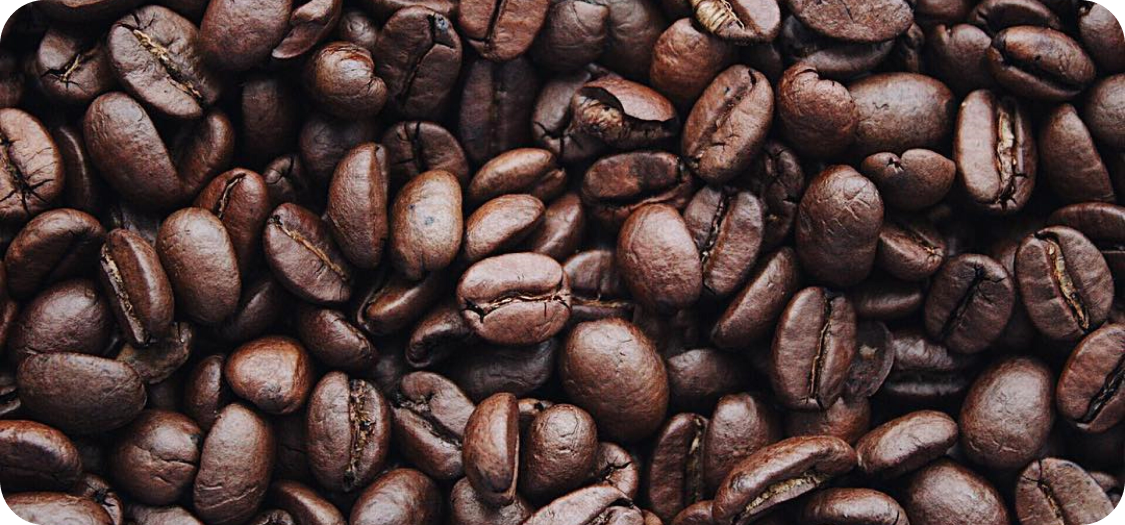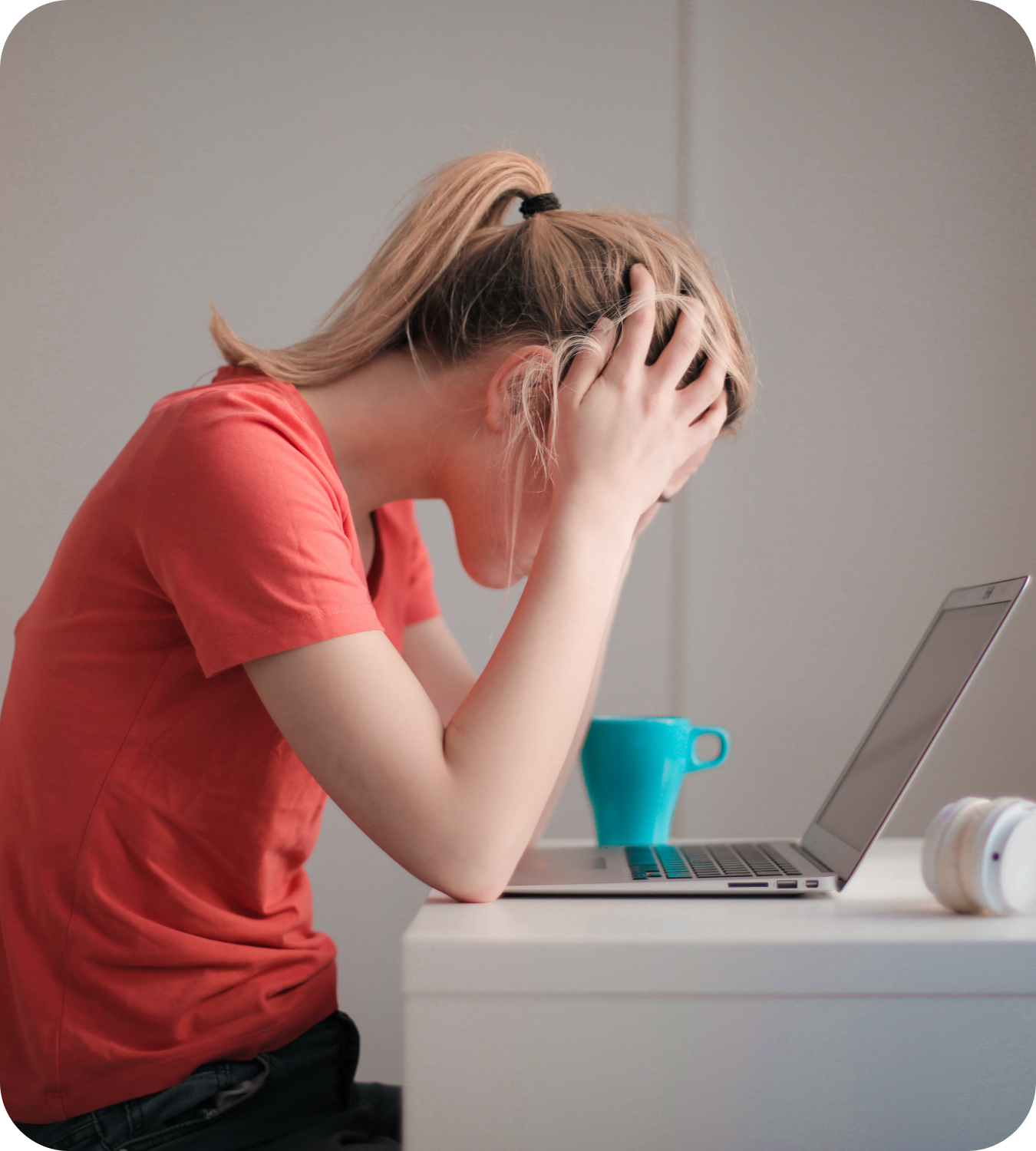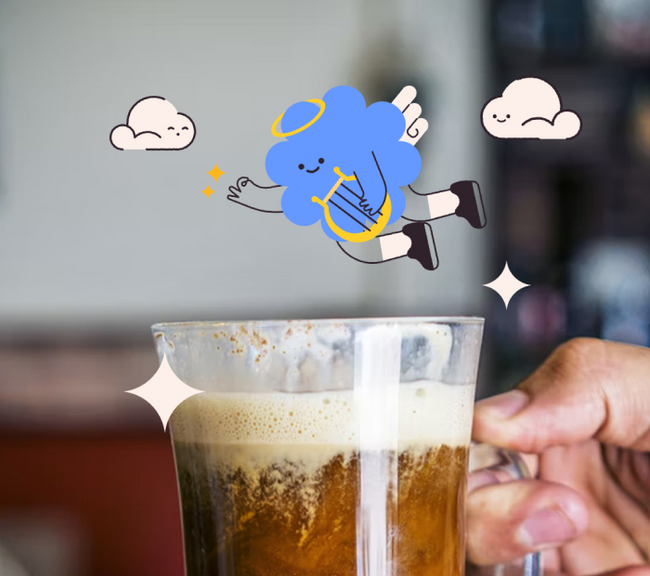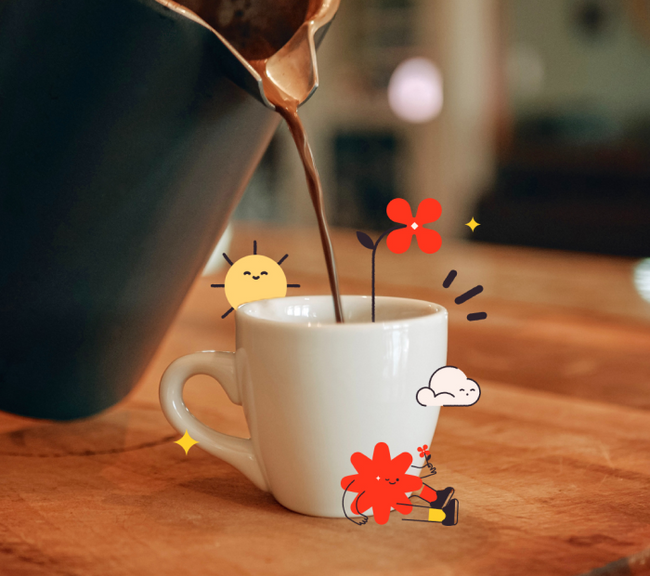Caffeine is a natural stimulant found in coffee, tea, soft drinks, energy drinks, and some medications. Caffeine jitters, also known as caffeine-induced anxiety or nervousness, refer to the uncomfortable and often jittery feeling that some people experience after consuming too much caffeine.
Key Takeaways:
- On average, an 8-ounce cup of coffee contains around 80-100 mg of caffeine, while tea contains 20-60 mg per cup. Energy drinks contain much higher levels, ranging from 80-300 mg per serving.
- Caffeine jitters which are experienced by a significant portion of the population, are a temporary and unpleasant effect of excessive caffeine intake, causing shaking, restlessness, and nervousness. The severity and duration of these jitters vary among individuals.
- Staying hydrated, reducing caffeine intake, consuming electrolytes, and indulging in meditation or light exercise like walking can help rid of caffeine jitters quickly.
It affects the central nervous system and can lead to various effects on the body, including:
- Restlessness: People with caffeine jitters may feel agitated, fidgety, or unable to sit still.
- Nervousness: Excessive caffeine intake can lead to feelings of anxiety or unease.
- Tremors: Some individuals may experience shaky hands or tremors as a result of excessive caffeine consumption.
- Digestive Issues: Caffeine can irritate the stomach and may cause gastrointestinal discomfort.
- Difficulty Sleeping: High doses of caffeine can interfere with sleep, making it difficult to relax and fall asleep.
Caffeine sensitivity varies from person to person, and some individuals are more prone to caffeine jitters than others. Factors such as genetics, tolerance, and overall health can influence how much caffeine a person can consume without experiencing these side effects. Through this article let’s explore simple ways that can help to get rid of caffeine jitters quickly.
How much Caffeine is too much?


The exact amount of caffeine that is considered too much can vary from person to person, as individuals have different sensitivities and reactions to the substance. However, the Food and Drug Administration (FDA) suggests that a daily intake of up to 400 milligrams (mg) of caffeine is generally safe for most healthy adults. This is approximately four cups of coffee. Consuming more than this amount may lead to adverse effects, such as restlessness, increased heart rate, anxiety, insomnia, digestive issues, and in some cases, even more severe symptoms. It is important to be aware of your own tolerance and to moderate your caffeine intake accordingly. Additionally, pregnant women, individuals with certain medical conditions, and those taking certain medications may need to limit or avoid caffeine altogether.
Why does Coffee make me Jittery?


Coffee can make some people feel jittery due to its caffeine content and its impact on the central nervous system. Caffeine is a natural stimulant that can affect various processes in the body, and when consumed in excess, it can lead to jitteriness and other uncomfortable sensations. Here's why coffee may make you feel jittery:
- Stimulating the Central Nervous System: Caffeine is a central nervous system stimulant. It can increase the release of certain neurotransmitters like dopamine and norepinephrine, which can lead to heightened alertness and a sense of increased energy. However, in excessive amounts, this heightened stimulation can result in jitteriness and anxiety.
- Increased Heart Rate: Caffeine can cause your heart rate to increase. This can make you feel more aware of your heartbeat and may contribute to the sensation of jitteriness or restlessness.
- Release of Stress Hormones: Caffeine can stimulate the adrenal glands to release stress hormones like cortisol. This can lead to feelings of anxiety and restlessness in some individuals.
- Individual Sensitivity: People experience different levels of sensitivity to caffeine. Some individuals are more prone to experiencing the jittery side effects of caffeine, while others may be less affected. Genetics, overall health, and tolerance ability can all influence how your body responds to caffeine intake.
- Excessive Consumption: Drinking too much coffee or consuming other sources of caffeine can increase the likelihood of experiencing jitteriness. What's considered excessive can vary from person to person, but it's generally recommended to consume caffeine in moderation.
- Lack of Tolerance: If you're not a regular coffee drinker and suddenly consume a large amount of caffeine, your body may not be accustomed to the stimulant, making jitteriness more likely.
If you find that coffee makes you feel excessively jittery or anxious, it's a good idea to moderate your caffeine intake. You can try switching to decaffeinated coffee or other beverages, like herbal tea, that do not contain caffeine.
Additionally, staying well-hydrated and having a balanced diet can help mitigate the jittery effects of caffeine. If you have concerns about caffeine sensitivity or experience severe anxiety or discomfort after consuming caffeine, you should consult with a healthcare professional.
How to Get Rid of the Caffeine Jitters Quickly?


1. Stay Well Hydrated
Making sure you're well hydrated is the first step in minimizing caffeine jitters. Dehydration results from not drinking enough water, and symptoms include headaches, decreased urine, weariness, and dizziness. You may also have a greater desire for sweets. After your morning cup of coffee, you may feel restless and nervous if you're already exhibiting signs of dehydration from the previous day.
If you drink other caffeinated beverages during the day, you'll notice this even more. So, try to intentionally reach for water during the day to maintain your body's equilibrium.
2. Take a Walk
Follow a morning walk routine of no more than thirty minutes. Walking improves mood in addition to helping lose weight and lower chances of developing chronic illnesses.
Walking for just ten minutes a day has been shown to have a major positive impact on one's mood. Additionally, it can stimulate the digestive system aid in the body's burning of extra fat, and reduce anxiety that comes with caffeine jitters.
In a nutshell, give yourself a balanced energy boost before you start your workday, and you'll be much less likely to experience any negative effects from coffee.
3. Eat a Healthy Meal
For many people, brewing coffee is the first thing in the morning routine. It may be surprising for many to know that consuming coffee on an empty stomach might have physiological effects making one more susceptible to experiencing jitters. First off, if a person consumes coffee on an empty stomach, the blood sugar level may rise.
Additionally, coffee increases the acidity of the stomach due to its natural acidity, which raises the risk of experiencing heartburn and reflux symptoms. Further, in the long run, a person may experience inflammation of the stomach and esophagus.
4. Take L-Theanine
L-theanine, an amino acid is commonly found in tea leaves, particularly green tea. If you're experiencing caffeine jitters and want to calm down quickly, supplementing with L-theanine can help counteract the effects.
The recommended dosage of L-theanine is generally between 200-400 mg. However, the optimal dosage may vary depending on the individual and their sensitivity to caffeine. Start with a lower dose and adjust as needed.
5. Consume Electrolytes
Caffeine jitters can result in dehydration. To get rid of this, consume electrolytes such as sodium, potassium, magnesium, and calcium. These are essential for maintaining nerve, and muscle function and acid-base balance in the body. Incorporate electrolyte-rich foods or drinks into your routine, such as coconut water, bananas, yogurt, or sports drinks. These can help replenish the electrolytes that may be lost due to the diuretic effect of caffeine.
How long do Coffee Jitters last?


The duration of coffee jitters can vary from person to person and depends on several factors, including your individual sensitivity to caffeine, the amount of caffeine consumed, and your overall health. In general, the effects of caffeine, including coffee jitters, typically peak within 1 to 2 hours after consuming caffeine and gradually subside over several hours. Here's a rough timeline for the duration of coffee jitters:
- Onset (0-30 minutes): After consuming caffeine, especially in larger quantities, you may start to feel the effects relatively quickly. Jitters, increased heart rate, and restlessness can begin within the first half-hour.
- Peak (1-2 hours): The coffee jitters typically reach their peak intensity about 1 to 2 hours after consumption. During this time, you may experience the most significant restlessness and anxiety.
- Subsiding (3-6 hours): After the peak, the effects of caffeine gradually start to subside. You may notice a reduction in jitters, but it can take several hours for caffeine to be metabolized and eliminated from your body.
- Complete Elimination (6-10 hours): Most of the caffeine will be eliminated from your system within about 6 to 10 hours after consumption. However, this can vary depending on factors like your metabolism and individual caffeine sensitivity.
It's important to note that caffeine can affect people differently, and some individuals may experience lingering effects or have a longer recovery time. Additionally, the half-life of caffeine (the time it takes for half of the caffeine to be eliminated from the body) can be influenced by factors such as age, genetics, and liver function.
If you've consumed a high amount of caffeine and are experiencing severe coffee jitters that don't seem to subside, it's a good idea to consult a healthcare professional for guidance and support. In most cases, the jitters will resolve on their own as your body processes and eliminates the caffeine, but it's essential to stay well-hydrated, maintain a balanced diet, and avoid additional caffeine until you feel back to normal.


Conclusion

Caffeine jitters are the uncomfortable and sometimes jittery feeling that occurs after consuming too much caffeine. Caffeine is a stimulant that affects the central nervous system, increasing alertness and temporarily warding off drowsiness. However, consuming excessive amounts of caffeine can lead to symptoms such as restlessness, nervousness, rapid heartbeat, trembling hands, and anxiety. These jitters are commonly experienced after consuming large amounts of coffee, energy drinks, or other caffeine-containing beverages. The severity and duration of caffeine jitters can vary from person to person.
To alleviate these symptoms, it is advised to reduce caffeine intake, stay well-hydrated, and engage in calming activities such as breathing exercises or light physical activity.




















